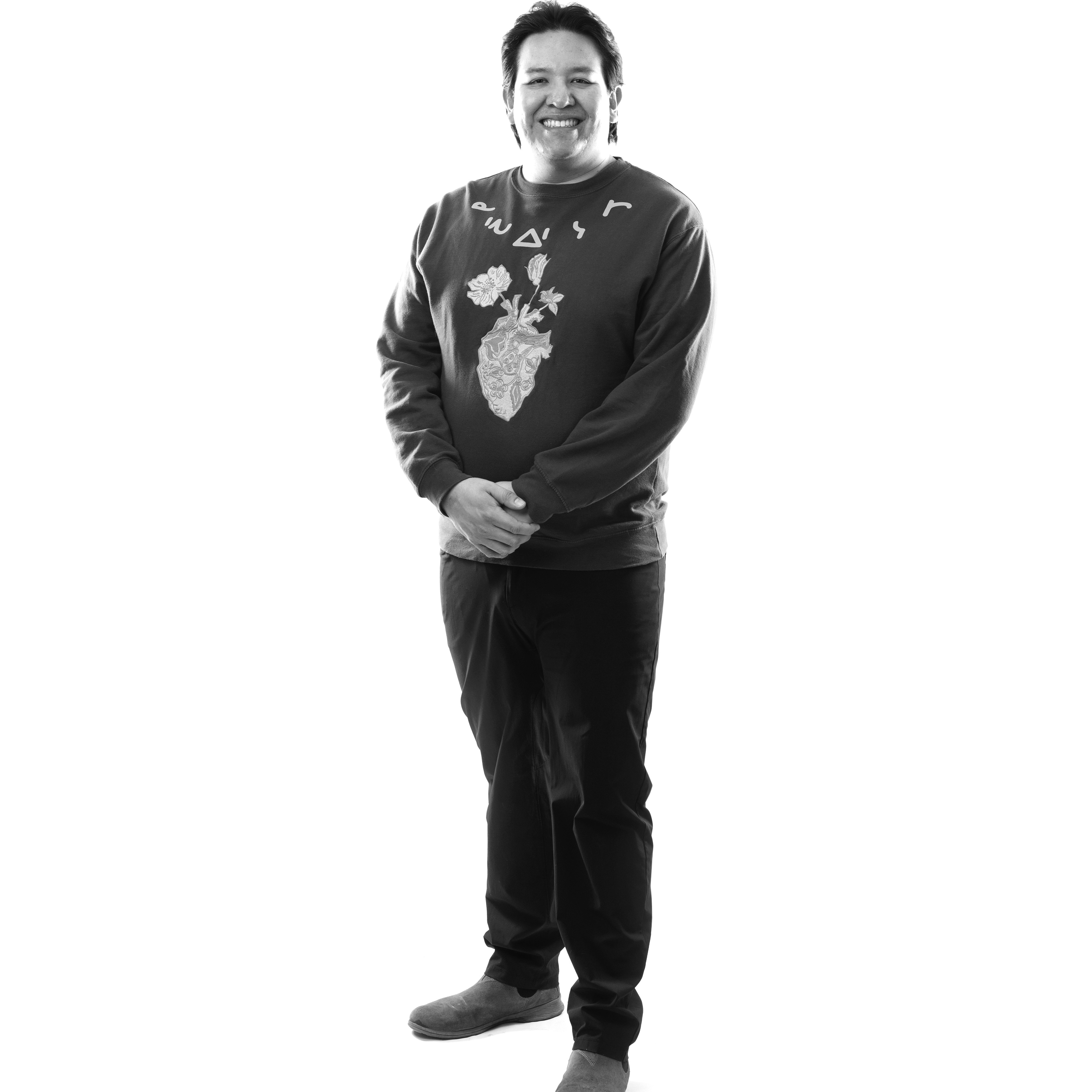Promoting Indigenous Wellness
Gillian Rutherford - 21 December 2022

Jesse Alook’s home on the Bigstone Cree Nation near Wabasca, Alta., was a busy place when he was growing up. No matter who showed up, they always received a warm welcome.
“I just thought my grandparents were popular, but now I see this was their way of helping people and showing them that, you know, they can be helped and there are people out there willing to help,” Alook says. “I come from a very community-driven family.”
One mosôm (grandfather) runs the nation’s youth services, the other was a band councillor and an auntie is the longest serving nurse in the community. Alook is now carrying on that tradition by working to make health-care services more accessible and culturally safe for Indigenous people across Alberta. Armed with his bachelor of science in nursing and a master of public health degree specializing in health policy and management, Alook has recently started work as a part-time health promotion facilitator with Alberta Health Services’ Indigenous Wellness Core, which delivers health services for First Nations, Métis and Inuit peoples in Alberta. He is also taking on a role with the Community-University Partnership on an Indigenous languages revitalization project.
Alook served as president of the Indigenous Graduate Students’ Association in 2020-21 and also co-chaired a committee of the School of Public Health Students’ Association, which advocated for all graduate students to take the Indigenous Canada online course. Alook received the Robert Wood Johnson Award as the grad student most likely to make a valuable contribution to health service management.
Before starting his master’s, Alook worked as a nurse in the University of Alberta Hospital’s Department of Emergency Services. As an Indigenous health-care professional, he knew his presence was important to the Indigenous patients he encountered.
“I feel that it brings a sense of comfort to Indigenous Peoples when they come into the hospital and they see someone that looks like them, especially if they’re from a small community,” he says.
Alook found the work stimulating, but he was disheartened by the complications he saw from diabetes, heart disease and other chronic illnesses that affect Indigenous people disproportionately.
“I was putting on Band-Aids all day, just little solutions to problems that, if they had been addressed 20 or 30 years ago, then they wouldn’t be showing up in emergency today,” he says.
That drove Alook to consider studying health policy with the aim of making a bigger-picture difference to the inequities he saw, using his nursing training and experience to inform and ground his work.
“All the things that have happened to Indigenous people, including residential school, smallpox epidemics, everything in our colonial relationship with European settlers, has led to mistrust in the health system,” he says. Alook will now work to build back that trust within the health-care system. He has the following three tips for non-Indigenous health-care professionals who want to help:
- Do your own research to better understand the history of colonialism and its impact on Indigenous people in Canada.
- Understand that there are many different Indigenous nations and communities and each has its own culture and health-care needs. One size does not fit all. “We’re all Indigenous but we’re also quite different,” Alook says.
- Be aware of your position as a care provider or a researcher and be sure your work is always for the betterment of the community where you work.
Read the full story "Big Care in Small Centres" in our Winter 2022 Alumni Magazine: https://issuu.com/uofanursing/docs/nursing_winter2022_v10.